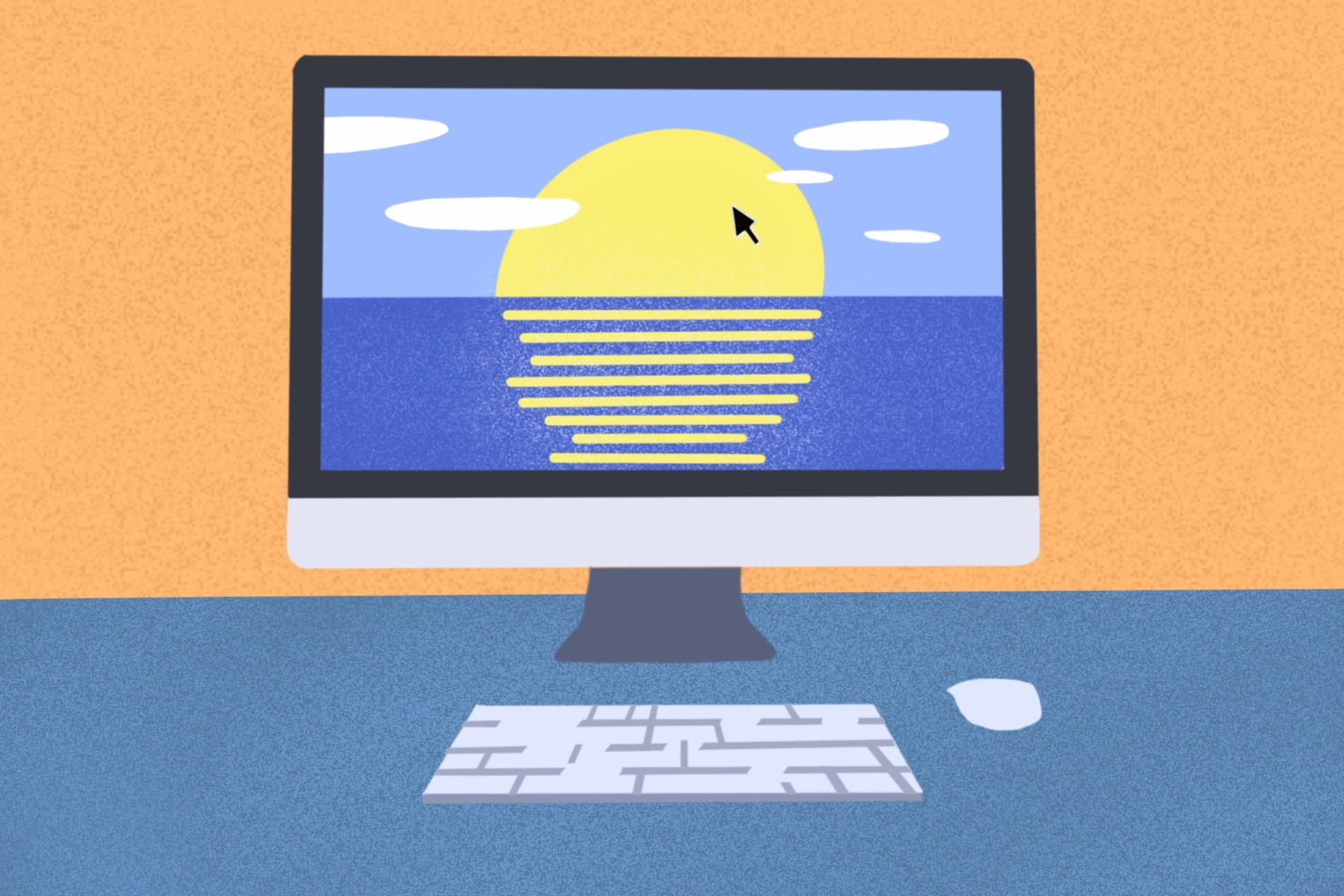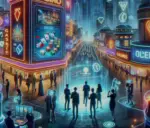I read Cal Newport’s “Digital Minimalism” this spring while campuses were still open, and I thought it brought up a great idea. He proposes a radically different lifestyle from the constant connection that’s become commonplace, with practices ranging from deleting social media to texting just a few times a day.
His minimalist philosophy was so enticing that I deleted Instagram and Snapchat from my phone. But looking back after five months into quarantine, digital minimalism hits different.
For one, my online addiction has returned with a vengeance. My eyes have slowly acclimated to more hours of daily screen time than I’d like to admit, and social media seems to have reestablished itself in my routine for good. If the second spike in COVID-19 cases is any indication, reopening will last a lot longer than we’d guessed: While so many recreational events and resources remain on hold, digital entertainment feels like the only thing that can help pass the time.
Newport’s philosophy now feels about as tangible as a shimmering mirage in some virtual reality or parallel universe — but I found myself coming back to it for some reason. Is digital minimalism still worth pursuing, I wondered, when there’s not much else to do?
I imagine Newport would counter that quarantine is actually the perfect time to double down on our habits and carve out a more sustainable relationship with our devices.
From the premise of having a tech philosophy all the way down to his practical recommendations for tempering our screen time, Newport’s ideas can radically shift the way we spend our free time — and many of us have that in abundance these days.
Newport’s book is about so much more than tech use: Grounded in a minimalism that extends beyond devices, “Digital Minimalism” at its core is about living a fulfilling life.
Taxing Tech Addiction
Newport starts off by addressing the harms that come with excessive time online, using research to remind us of what we’re too reluctant to admit.
If we’re honest, distracting ourselves with videos, TV episodes and quick online reads is a poor substitute for our pre-pandemic plans. While I had previously used quarantine as a green light for throwing moderation to the wind, technology never really seemed to deliver the satisfaction I craved. Hours spent curled up with my phone only left me with gnawing dissatisfaction and lingering guilt. The no-limits lifestyle is no way to support our mental health and productivity.
Newport also obliterates the myth that social media can support or deepen vibrant real-life relationships. Since Newport has never owned a social media account in his life, he speaks with a certain air of objectivity that borders on elitism — but even I found strength in his argument.
Leaving a comment on a friend’s post or reaching out for a quick conversation over DM are nice ways to get back in touch, but even lengthy exchanges over text aren’t substantial enough to satisfy our human desire for legitimate conversation. We’re built to crave real-time, face-to-face exchanges that are rich with nonverbal cues and demand our full attention. At the end of the day, only interactions like these leave us feeling supported and loved.
Philosophy, Not Hacks
In light of all the digital junk food and our lifestyles of overconsumption, Newport argues that everyone living in the 21st century needs a philosophy to structure their use of technology.
Spending hours of your day on your laptop or phone is not only an inefficient way to reap the benefits you desire; it also corrodes your real-life goals and your flesh-and-blood relationships. But in an age where everything is becoming digitized, quick tweaks and life hacks aren’t enough to stop the tidal wave of harm and narrow down our tech use to what’s most valuable.
To effectively overhaul our relationship with all things digital, Newport asserts that we need a philosophy. Enter digital minimalism.
Minimalism: Start With Your Values
Newport’s book defines digital minimalism as “a philosophy of technology use in which you focus your online time on a small number of carefully selected and optimized activities that strongly support things you value, and then happily miss out on everything else.”
The most extraordinary aspect of Newport’s philosophy is that it’s value-based. Newport advises readers to zoom out from just their weekly screen-time reports and take stock of their lives as a whole.
Start with the things you value most, he says — from family to passions to life goals. Then, instead of mindlessly reintroducing all the online buzz as an underlying soundtrack, adopt the minimalist mindset of cutting most of it loose. Focus on living out your values in real life and then take the time to hand-pick the digital tools that will most directly and effectively support those values in your offline life with minimal drawbacks.
It’s kind of like Marie Kondo’s method but in reverse and with a specific standard for “joy.” Newport’s minimalism says: Assume most of the online noise (like Twitter feuds and cat memes) doesn’t spark true joy. Then, only reintroduce the pieces of tech that align with and contribute to your most cherished values.
Cultivating High-Quality Leisure IRL
But how do we live out these values when most community events are still cancelled, and it’s still unsafe to frequent our favorite local spots?
The minimalist philosophy of relentlessly maximizing the things that bring the most joy and letting go of everything else is built on the bedrock of personal responsibility. When all’s said and done, minimalists believe that your happiness shouldn’t depend on what venues are open or what events are going on. In times of adversity, we must learn to adapt and find other sources of joy.
To resign yourself to Netflix surfing, says Newport, is to sell yourself short. While tech can be healthy and helpful in moderation, it’s a misconception to think that our time online becomes more valuable in quarantine. Instead of using TikTok or YouTube as a crutch to avoid our feelings or fill our gobs of free time, we should work, as pre-internet generations have done, to adapt our lifestyles to fit the new normal.
Our tech use might increase a little in lockdown, for sure. But we shouldn’t be relying solely on digital entertainment to fill the new gaps.
Especially now when we’re apart, we need to build a deeper foundation of habits that give us purpose beyond the digital world. Healthy real-life relationships, regular offline solitude and high-quality hobbies are some of the pillars of a joy-filled life, according to Newport. He lists plenty of examples of how to practice these goals, including hosting weekly phone office hours, taking daily walks and revisiting your old favorite hobbies.
Digital Declutter
In this lies the appeal of digital minimalism: that less online time will give us more space to finally do the things we’ve always dreamed of. But Newport stresses that our good efforts to simply add in all of these wonderful new habits won’t last if we don’t first clear a path for them by trimming away all the overgrowth of our digital addictions.
“In my experience,” Newport wrote, “gradually changing your habits one at a time doesn’t work well — the engineered attraction of the attention economy, combined with the friction of convenience, will diminish your inertia until you backslide toward where you started.”
We won’t find the motivation to finish our books or baby herb gardens if our eyes are twitching toward our phones at every spare moment.
We need to get a handle on our digital overconsumption first. Like the elimination diets that involve cutting out known allergens for a few months to see what’s triggering your symptoms, Newport proposes a digital declutter: a 30-day stint of no optional technology usage — no social media, texting, Hulu or news.
The aim is to get rid of all the stimulus of digital content for a while and learn to exist without constantly looking down at your phone. Your goal is to aggressively explore hobbies and projects that you love — things you can sustainably build your free days around that add more value to your life than online scrolling does.
Creating a Personal Plan of Action
At the end of the declutter, you can gradually and strategically reintroduce only the digital tools you derive definite value from.
Newport gives readers ideas for how to create digital strategies that fit their own lifestyles and needs. For most of us, technology is more than just entertainment: We also use our devices to maintain long-distance relationships, stay up to date with the news and explore new ideas.
If you like staying up to date with the news, for instance, Newport suggests sitting down with a few curated articles from your favorite online magazine at a local coffee shop once a week. If you love movies but are prone to binge-watching on your own, you can make a rule for yourself to only watch Netflix with others so that the experience becomes a social activity.
The key is to employ specific tactics when using each tool that will enable you to “[drop] in to extract value, and then [slip] away before the attention traps … can spring shut.”
In Conclusion
If you only take one thing away from Newport’s digital minimalism, let it be this: Creating a meaningful, fulfilling offline life takes planning, parameters and commitment.
It’s no fun to give up the always-online lifestyle. And some of Newport’s suggestions, like deleting our social media accounts, are a little extreme. But behind the strict tightening of our online habits is an invitation to regain autonomy and create a life that doesn’t require digital diversions to be fulfilling.
While Netflix has its place, let’s face it: It’s the offline, in-person activities that will truly nourish us in this strange time. Be gentle with yourself — but branch out.

















